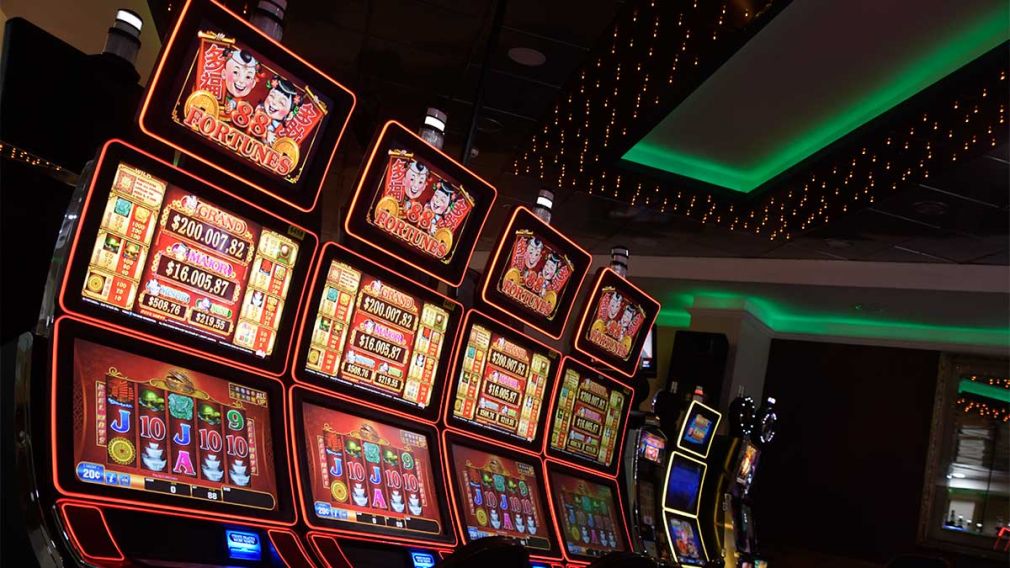
Casino games have long been an integral part of human culture, offering not just entertainment but a fascinating reflection of our aspirations, ambitions, and fears. From the rotating wheels of a slot machine to the skill-based strategies of poker, these games represent a spectrum of human feelings and experiences. At their core, casino games are not just a chance to win money; they are a microcosm of life itself, where risk and reward merge and fortunes can change in an moment.
As players gather around tables or sit in front of brightly lit machines, they engage in a tradition that transcends mere playing. Trang chủ F8BET These games mirror our instinctive desires for relationships, thrill, and the search for fortune. They also unveil deeper truths about human psychology, such as our relationship with luck and the excitement of the unknown. In exploring casino games, we reveal not only the rules of play but also the rich tapestry of the human journey, showcasing our woven narratives of hope and reality.
The Mind Behind Gambling
Wagering is intrinsically connected in human psychology, tapping into various emotions and desires. The excitement of taking risks is a core aspect that attracts participants, whether it’s thrill of spinning a roulette wheel or the excitement of drawing a winning hand in a poker game. This rush of adrenaline is frequently likened to other forms of excitement, as the unpredictability of outcomes elicits a distinct psychological response. Gamblers often become captivated by the possibility of striking it rich, leading to an almost magnetic draw toward gambling games.
Additionally, an essential component of the psychology behind gambling is the concept of hope and ambition. Participants often indulge in dreams of financial freedom and the luxurious lifestyle that can follow winning. This optimism fuels their ongoing participation in gambling, as it provides a sense of purpose and the conviction that a life-changing win could be just one wager away. The story of beating the odds and achieving success resonates with many, strengthening their commitment to play and engage with these games.
Lastly, social aspects play a crucial role in gambling psychology. Gambling venues are designed to promote social interaction, where gamblers gather to share the journey of wins and losses. This communal aspect not only enhances enjoyment but also influences behavior, as individuals often imitate the actions of others around them. The social validation found in shared excitement can enhance the emotional experience, making casino games a reflection of not just personal desires but also shared involvement within the gambling community.
## The Dual Nature of Risk and Reward
Gambling games embody the fragile balance between risk and gain that resonates profoundly with the human experience. The rush of placing a wager is often accompanied by a rush of adrenaline, as gamblers are confronted with the possibility of striking it rich, yet fully aware of the potential to suffer losses. This bipartisan experience reflects a essential aspect of life: the paths we choose often come with built-in risks, and the chase for gain can drive us to take chances we might not normally consider. In this way, casino games mirror real-world choices, enticing gamblers to gamble not just their money, but also their hopes. https://f8bet.co.com/dieu-khoan-su-dung-f8bet/
The allure of jackpot prizes and payouts fuels a wave of hope, encouraging players to dream of a more promising future that could emerge from a single victorious spin of the wheel or dealing of a hand. This positive outlook can compel individuals to engage in greater risks, pushing them to extend their limits in search of monetary success. However, just as in life, the consequences of these risks can lead to both victory and despair. The narratives of both big winners and those who have faced losses everything at the tables demonstrate the chaotic nature of chance and its impactful effect on our existence.
Ultimately, the experience of engaging with casino games serves as a potent reminder of the human condition. Every game played is filled with the tension of ambiguity, as gamblers weigh the rewards against the dangers. This dynamic not only highlights the thrill that comes with gambling but also exposes the weaknesses that come with the longing for more. As we journey through the complexities of decision-making and results in both the casino and in life, we find that the pursuit of risk and reward shapes our identities and experiences in deep ways.
Community and Solitude in Gambling Culture
Casino culture is a special blend of communal engagement and personal endeavor, reflecting the contrasts of human experience. Gamblers often come together around games, experiencing in the thrill of the action, rejoicing in wins, and sympathizing over losses. This social aspect is essential, as it establishes a sense of belonging and bonding among diverse groups of individuals. Regular attendees to gaming establishments may form friendships and establish routines, turning the casino into a alternative home where they experience connected to a larger community of gamblers.
However, the appeal of casino activities can also lead to loneliness. As individuals become immersed in the thrill of gambling, they may isolate from personal relationships or fail to interact with the world outside the casino. For some, the pursuit of a jackpot can distract from real relationships, leading to loneliness. The situation of being surrounded people yet feeling solitary is not uncommon, as the attention shifts from shared enjoyment to the individual stakes of each individual’s path.
This interplay of community and isolation creates a rich tapestry that defines gaming atmosphere. It highlights the complexity of social interactions, where joy and despair exist together. Gambling venues serve as both a sanctuary for social engagement and a platform for individual struggles, illustrating how intimately connected our desire for connection and the individual quest for wealth can be. In navigating this landscape, gamblers confront their own stories—seeking both the thrill of the wager and the fellowship of fellow gamblers, eventually reflecting the wider spectrum of individual experience.
